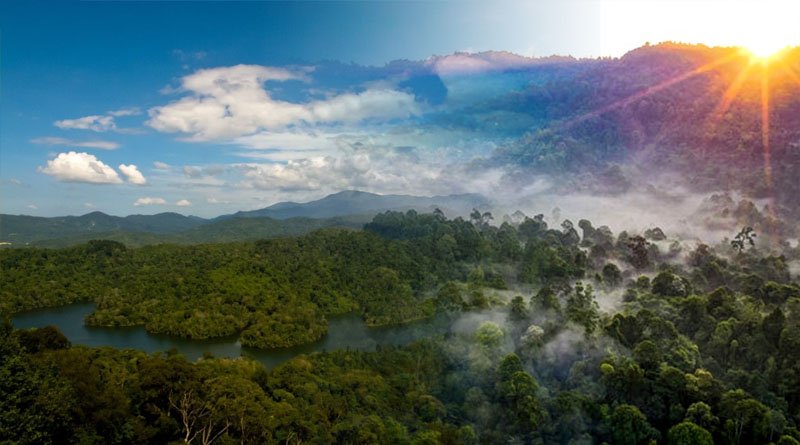One of the world’s largest carbon-sequestration sites, the Congo peatlands, are the subject of a five-year, multidisciplinary study led by Professor Lewis.

The Royal Society, one of the highest honours in science, has elected a researcher who exposed the danger that climate change poses to tropical forests in Africa to the rank of Fellow.
The Fellowship, according to Simon Lewis, a professor of global change science in the School of Geography, was the result of “two decades of teamwork” involving individuals from all over the world.
One of the world’s largest carbon-sequestration sites, the Congo peatlands, are the subject of a five-year, multidisciplinary study led by Professor Lewis.
About 30 billion tonnes of carbon are thought to be stored in the peat, according to the CongoPeat project. The carbon may be released into the atmosphere, increasing greenhouse gas concentrations, if the Congo forests become hotter and drier as a result of climate change.
The peatlands released carbon as a result of past climate change events, according to research published last year. The Natural Environment Research Council provided funding for the project, and climate change policies are being informed by the study’s findings.
The Fellowship of the Royal Society honours people who have “substantially contributed to the advancement of science,” according to the UK’s national academy of sciences, which is also the oldest science academy still in operation.
Isaac Newton and Professor Stephen Hawkin were both Fellows in the past, and the Leeds Chancellor, Professor Dame Jane Francis, and Emeritus Professor of Geophysics Gregor Houseman were both elected in 2021. Professor Lewis said of the honour: “I am really, really pleased and, to be completely honest, a little surprised.”
“This honour is awesome and serves as a celebration of our 20 years of collaboration. I have done a lot of fieldwork in tropical forests and remote tropical swamps, frequently to places where few scientists go, relying on the generosity of local people to host our field teams.”
“My election as a Fellow of the Royal Society rests on the hard work of many PhD students, post-doctoral researchers, and scientists from all over the world. With this honour, I hope to raise awareness of the urgent need to better protect tropical forests and enhance the living conditions of those who rely on them.”
Professor Lewis’s larger body of work focuses on the effects of human activity on the “earth system,” particularly on tropical ecosystems. It has made it easier to understand how forests, deforestation, and climate change interact.
“This is a fantastic and fitting honour for Simon, whose research is highlighting one of the most critical issues around climate change: how to protect those natural systems that protect us all from damaging changes to the climate,” Vice-Chancellor and President Professor Simone Buitendijk said.
He is making a significant contribution to finding potential solutions to the major issues facing the world by collaborating with local communities and supporting networks of scientists and researchers. His methodology perfectly captures how Leeds conducts research.
Sir Aidrian Smith, President of the Royal Society, said: “I am delighted to welcome our newest cohort of Fellows” after announcing 80 new Fellowships. “These people have advanced the frontiers of their specialised fields and improved society at large.”
“Those who were at the forefront of the COVID-19 pandemic response and those working on global challenges, from TB to climate change, are among this year’s intake. They are cutting-edge researchers and creators from around the world who have defied predictions and altered our way of thinking.”